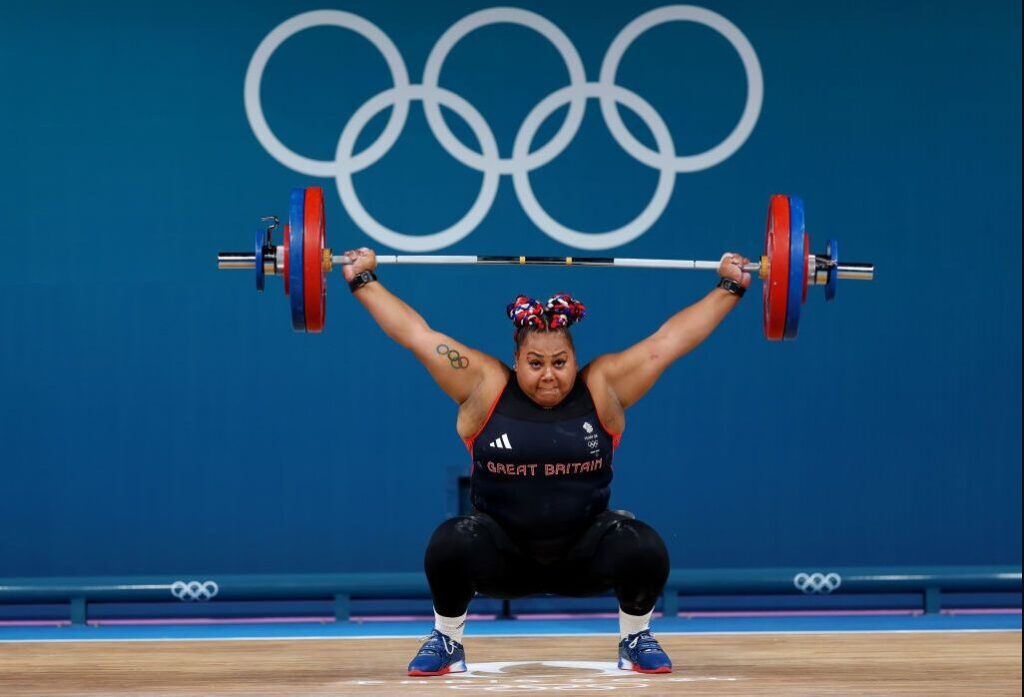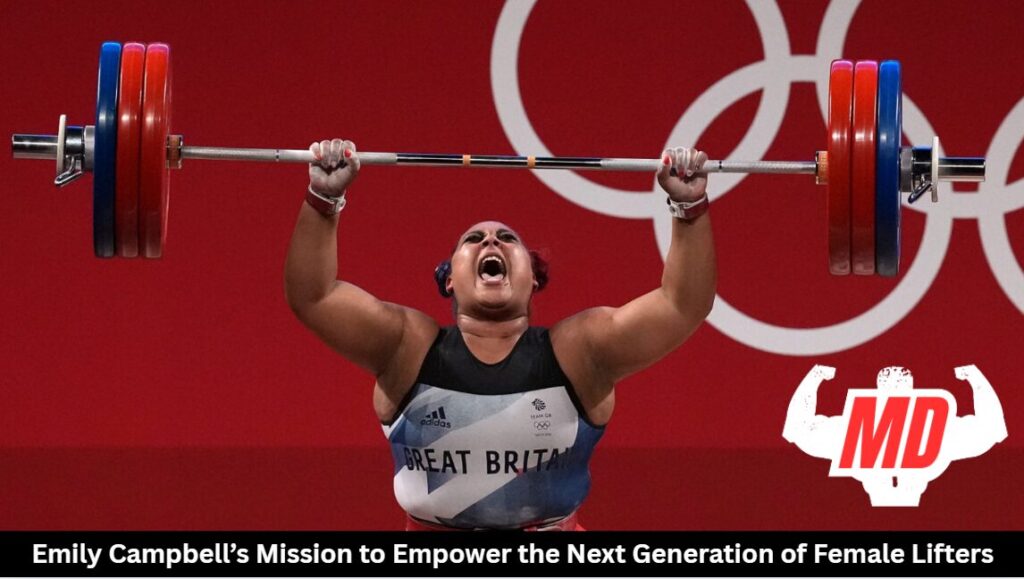Emily Campbell is more than a decorated Olympic weightlifter—she is a transformative force in women’s sports. While her silver medal at the Tokyo 2020 Olympics brought her international acclaim, it’s her tireless advocacy for young female athletes that truly defines her impact.
Who Is Emily Campbell?
The first British woman to win an Olympic medal in weightlifting was Emily Campbell, who set a precedent in British weightlifting. Her silver medal at the Tokyo Games changed her career and helped raise the profile of female strength athletes in the UK.
Campbell also has multiple British records and has dominated the European weightlifting circuit. She is a household name because of her athletic abilities. Yet, humility and a desire to give back have established her as a role model in the UK and worldwide.

The Importance of Representation in Weightlifting
Female representation in a traditionally male-dominated sport can be transformative. Young girls seeing someone like Emily Campbell perform on the world stage challenges old stereotypes and expands their ideas of what is possible for them.
Campbell is now visible and open about female strength. She brings more people into mainstream media and sports broadcasts to see how women can lift weights. More than a personal victory, her rise represents progress for the sport itself.

Emily’s Advocacy and Mentorship Initiatives
Her message is consistent: Strength comes to all.
She spreads body positivity and athletic empowerment through social media. On her platforms, she offers encouragement, training tips, and intimate reflections for new lifters. In addition, she works with UK-based sports organizations to promote gender equality in athletic funding, coaching access, and talent development.
Collaborations with campaigns, including “This Girl Can” and the British Weightlifting Federation, are examples of her willingness to effect structural change. She works to secure better facilities for female athletes and create inclusive programs.
Challenges Facing Female Lifters Today
Female weightlifters report systemic challenges despite growing support. Gender stereotypes linger and often keep girls from taking up strength sports. It remains a cultural barrier to weightlifting that many communities consider “unfeminine.”
Access to experienced coaching, sponsorship, and consistent media attention remains more limited for women than for men. Those gaps may limit progress and visibility for promising female athletes.
Emily Campbell removes these barriers by calling out injustices, promoting balanced media representation, and promoting policy change in sporting bodies. Her work helps existing lifters, and it also creates a system that allows young girls to start strong.

How She’s Inspiring the Next Generation
Many young lifters can see Campbell in their lives. Many stories are of girls who took up weightlifting after watching her compete or who stayed in the sport because they felt represented and encouraged by her. Whether directly or from afar, her mentorship instills ambition and belief.
At youth competitions, she gives advice and celebrates young talent. Her presence at these events means more than inspiration – it tells young athletes their journey is real, valuable, and deserving of recognition.
Emily also focuses on the mental side of the sport – helping girls become resilient, disciplined, and respectful. It is about character and determination, not just physical strength, she reminds them.
Frequently Asked Questions
What is Emily Campbell best known for?
Emily Campbell is best known for winning the silver medal in women’s weightlifting at the Tokyo 2020 Olympics, becoming the first British woman to medal in the sport.
How is Emily Campbell helping young athletes?
She engages in public speaking, mentors young lifters, supports youth competitions, and collaborates with sports organizations to create more opportunities for female athletes.
What challenges do female weightlifters face today?
They often encounter gender stereotypes, unequal access to coaching and facilities, limited media coverage, and a lack of institutional support.



